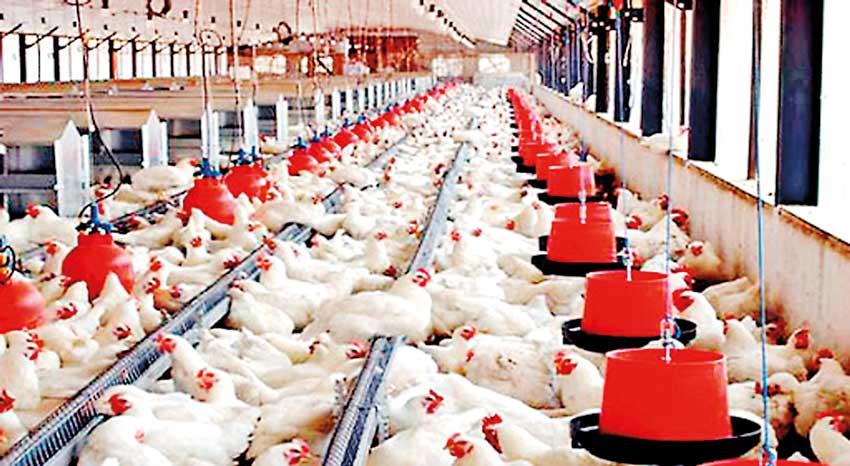26 Aug 2020 - {{hitsCtrl.values.hits}}

By Shabiya Ali Ahlam
Nutrition value and quality of locally farmed poultry and eggs are set to take a plunge with feed manufacturers pushed to substitute the key ingredient maize with other cereal grains.
With the government determined to protect local industries by banning the importation of maize, poultry feed manufacturers have been asked to continue to process poultry feed by replacing maize with wheat.
The removal of maize from the poultry feed formula would diminish the nutritional value of eggs and meat, making the proteins unworthy of consumption, the All Island Poultry Association of Sri Lanka (AIPASL) said.
“Since there are no more maize stocks to source locally and with the government staying firm on its position on the import ban of the same, poultry feed manufacturers are pushed to use other ingredients instead.
“While this may seem like the answer to the problem of poor access to maize, the solution only creates more issues such as poor nutrition,” AIPASL Advisor/Former Chairman Mathalee Jayasekara told Mirror Business.
Jayasekara stressed it is essential for the poultry feed formula to be manufactured with 50 percent maize to ensure the end consumer gains maximum nutrition.
Maize, which contains the highest amount of energy among cereal grains, is the principal energy source used in poultry diets due its high-energy value, palatability, presence of pigments and essential fatty acids.
By using wheat as the core ingredient, feed manufacturers are required to add vitamins and minerals so that some level of yolk pigmentation and meat quality can be maintained.
However, the incorporation of increased amounts and types of vitamins could result in a price increase of the end product.
Jayasinghe shared that the price per kilogram of feed, manufactured using wheat as a substitute, has increased by 8 percent.
“We are not saving anything. We are only losing. We are losing money since the cost of production of poultry feed has increased, and the feed itself, due to its reduced nutrition value, negatively impacts egg production, and compromises the health of the birds,” he stressed.
Jayasinghe said industry players have urged the government to reconsider its stance on the import ban imposed on maize and a decision on that is yet to be delivered.
18 Nov 2024 8 minute ago
18 Nov 2024 43 minute ago
18 Nov 2024 44 minute ago
18 Nov 2024 59 minute ago
18 Nov 2024 1 hours ago